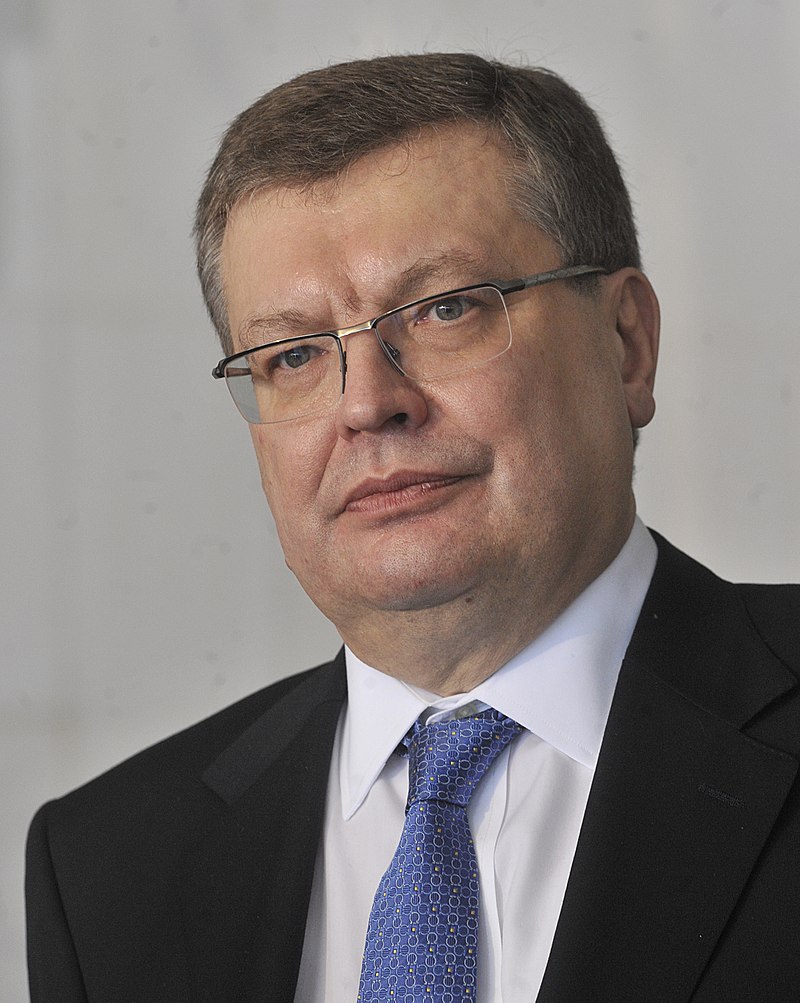BAKU, Azerbaijan, November 29. The Russian Foreign Intelligence Service (SVR) has reported that, according to its sources, NATO is increasingly inclined to "freeze" the conflict in Ukraine, given the apparent lack of prospects for delivering a decisive military defeat to Russia on the battlefield.
The West views this scenario as a way to rebuild the combat readiness of the Ukrainian Armed Forces and prepare Kyiv for a potential counteroffensive. According to the Russian side, NATO has already started setting up training centers in Ukraine, where at least one million mobilized Ukrainians are expected to be trained.
"Additionally, efforts will focus on revitalizing Ukraine's defense industry during the ceasefire, with active collaboration taking place with Western military-industrial companies, including Germany’s Rheinmetall, to bring in investments, specialists, and high-tech equipment. NATO recognizes that without providing sufficient arms and ammunition to Ukraine, it would be unrealistic to expect Ukrainian forces to sustain high-intensity combat over an extended period," the SVR said.
They state that in order to implement these plans, the West would effectively need to "occupy" Ukraine. "This would be done under the guise of deploying a 'peacekeeping force'," the report reads. "Specific regions of Ukraine are expected to be divided among the occupying powers:
- Romania would take control of the Black Sea coast,
- Poland would oversee the western regions,
- Germany would control the central and eastern parts,
- The United Kingdom would manage the northern areas, including Kyiv.
A total of 100,000 so-called peacekeepers are expected to be deployed. German military experts are reportedly studying the methods used by Nazi forces during World War II to establish occupation regimes in Ukraine. It has been concluded that performing police functions would be impossible without task forces made up of Ukrainian nationalists, who would be rebranded but essentially remain the same paramilitary groups," the SVR stated.
In an interview with Trend, Igor Korotchenko, Director General of the Caspian Institute of Strategic Studies (Russia), noted that the SVR has raised concerns about the expectations and strategies of some Western globalist elites regarding Ukraine.

"There’s a lot of speculation in the West about possible solutions to the Ukrainian crisis, but we rely on the official information provided by the SVR, which has access to reliable sources. This allows us to understand how the West envisions Ukraine’s future, through the lens of freezing the conflict and placing specific Ukrainian territories under NATO's control. This would both ensure control and allow for the restoration of Ukraine's military capabilities, ultimately setting the stage for future hostilities against Russia," Korotchenko explained.
He also commented on the growing interest in how Donald Trump’s administration might approach the Ukrainian crisis.
"Trump’s team has appointed a special representative, a retired senior general, but I don’t believe Trump or his team have a clear strategy for resolving the crisis. Meanwhile, the SVR, with its sources in NATO’s military-political circles, has revealed some of the expectations and plans of certain Western elites," the analyst added.
Korotchenko emphasized that Russia would not accept any proposals that do not meet the conditions set by President Vladimir Putin.
"These conditions are clear: Ukrainian forces must withdraw from the four new Russian territories. Only then can discussions on the denazification and demilitarization of Ukraine take place. Right now, the situation is highly turbulent, and much could change in the two months leading up to Trump’s inauguration. Nevertheless, I believe Russia will stick to the position laid out by Putin, and it won’t change. These are Russia’s fundamental terms for any negotiations," he added.
Former Prime Minister and former Minister of Foreign Affairs of Ukraine, Konstantin Gryshchenko, noted that currently, especially after Trump’s election, various ideas and proposals for ending the war in Ukraine are being actively discussed at all levels—intergovernmental, expert, and in reputable mass media.

“In this context, the issue of a sustainable ceasefire is logically viewed as a necessary first step toward achieving the ultimate goal—a lasting peace based on the fundamental principles of international law, with reliable guarantees against future aggression.
Russia shows no willingness to seek a solution on such a basis, instead aiming to impose its ultimatum of complete capitulation and the de facto destruction of Ukrainian statehood on Ukraine and all its supporters by force. This objective is precisely what underlies the statements of the entity you mentioned and other Russian official bodies. Beyond this, their statements carry no substantive meaning,” he said.
The former U.S. Ambassador to Azerbaijan Matthew Bryza noted that he had never heard of a plan to divide Ukraine's territory into "occupation zones".

"I follow these issues extremely closely and have never heard of any such plan. This is Russian propaganda. Poland has expected that maybe it and other willing NATO Member States could provide troops to fight in Ukraine, although not as part of a NATO operation," he said, adding that there has been no talk of Western peacekeepers or "occupation".
Peter Tase, an American scholar in European geopolitics and transatlantic security, believes that the current assessment by Russia's Foreign Intelligence Service is absolutely correct: more than 100,000 peacekeepers will be deployed in Ukraine with a clear objective – further escalation of the armed conflict in Europe.

"For the Poland Forces to enter the Ukrainian territory as peacekeepers will be a great blunder and a regional security miscalculation. The entry of foreign troops in the ground in the battlefield of Ukraine, under the guise of peacekeepers will enable Russia, give Moscow a legitimate right to conduct intelligence operations inside Germany, Romania, UK, and Poland and influence shifts in national political alliances," the expert noted.
He believes that NATO, with these peacekeepers’ operations, will emerge as a weaker alliance, a failed military force, and an international block with very little weight in European security infrastructure.
"Only 21 out of 31 member nations of NATO have reached the level of two percent of annual investment of their respective GDP towards defense. In a defense alliance that even the two percent of GDP is not allocated annually by all its members, there is a global perception that Euro Atlantic alliance is in deep trouble and in shambles," Tase added.






